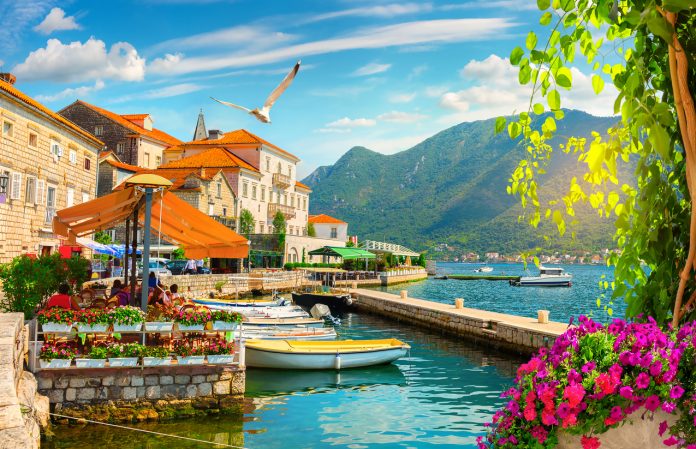Decebal-Ștefăniță Pădure is a member of the European Economic and Social Committee and Co-Chair of the EU-Montenegro Civil Society Joint Consultative Committee (JCC). Here, he charts Montenegro’s path to the European Union
The EU Montenegro Civil Society Joint Consultative Committee (JCC) is the formal bridge between the European Economic and Social Committee (EESC) and Montenegro’s social partners and civil society organisations (CSOs), tasked with monitoring accession progress, debating reforms, and issuing consensus-based recommendations to both Brussels and Podgorica. Meeting regularly – it convened for its landmark 20th session in Podgorica on 20th March 2025 – the JCC testifies that the road to European Union (EU) membership runs not just through institutions, but through an empowered, respected, and engaged civil society.
This message resonated again at the EESC’s 10th Western Balkans Civil Society Forum, held in Budva between 13th and 14th May 2025, where the opening panel ‘Accelerating EU accession for the Western Balkans: Montenegro paving the way’ underlined how closely the country’s membership timetable is tied to the depth of its civic participation. As Montenegro advances steadily on its path to EU membership, the role of civil society becomes increasingly crucial in shaping a transparent, inclusive and sustainable integration process.
Progress made and challenges ahead
Montenegro’s target to close all chapters by 2026 and join the EU by 2028 is ambitious, but achievable, through unwavering political will and inclusive reform processes. The fundamentals remain crucial: the rule of law, judicial reform, and functioning democratic institutions. We have seen positive momentum recently, with additional chapters having been provisionally closed at the Intergovernmental Conferences, and the government has set out a clear roadmap – the 2028 Agenda – to meet the remaining benchmarks.
However, political consensus and maturity among Montenegrin political actors are essential. Reforms must not only be passed, but also be deeply rooted in democratic values and have the support of the citizens. This cannot be achieved without the genuine inclusion of organised civil society – social partners and CSOs alike.
If civil society is sidelined, reforms risk lacking legitimacy and sustainability. The good news is that the government has started reporting regularly on the implementation of our joint recommendations – a best practice we hope will continue and deepen.
The key role of organised civil society
There has been progress in highlighting the crucial role of organised civil society throughout the accession process, especially in formal consultations and institutional cooperation, such as the inclusion of representatives of social partners and CSOs in the working groups for the accession negotiations with the EU and the re-establishment of the Council for Cooperation with NGOs.
Still, the process remains incomplete. While civil society is often consulted, their input is too rarely reflected in final decisions. The consultation process must be genuine, not symbolic. For instance, in the Reform Agenda and the Growth Plan implementation, many civil society suggestions were submitted but not adequately considered.
The JCC has urged the authorities to include social partners and specialised CSOs in the monitoring committee to ensure better oversight and alignment with citizens’ needs. Moreover, the ambiguity in the Law on Prevention of Corruption, which risked classifying civil society representatives as public officials, was a real threat to their independence. Following the JCC’s call, authorities clarified the law’s interpretation, but it is important to remain vigilant.
For Montenegro to succeed in its EU bid, civil society must be seen not as an opponent but as a strategic partner. That means meaningful public consultations on laws, transparency in public funding of CSOs and zero tolerance for attacks on civic activists and journalists.
Legacy of current JCC and hopes for the next mandate
Over the mandate (which ended in September 2025), the JCC has evolved into an active and trusted platform for dialogue and accountability. We have held hearings, opened meetings to a broader civil society, and ensured that our recommendations were not only heard but also acted upon. The Montenegrin Government’s commitment to reporting on implementation is a direct result of our insistence on accountability.
Over the next two-and-a-half years, the JCC should build on this by pushing for deeper integration of civil society into the very fabric of EU-related reforms, especially as we move toward potentially the final phase of Montenegro’s accession. If all goes well, by the end of the following mandate, we could even welcome Montenegro as a full EU member, with its own EESC representatives.
The ultimate goal must be a democratic Montenegro where civil society is empowered, institutions are accountable, and European values are lived every day. The JCC plays a critical role in helping us achieve this goal, and I am confident that the momentum we have built will carry forward.











